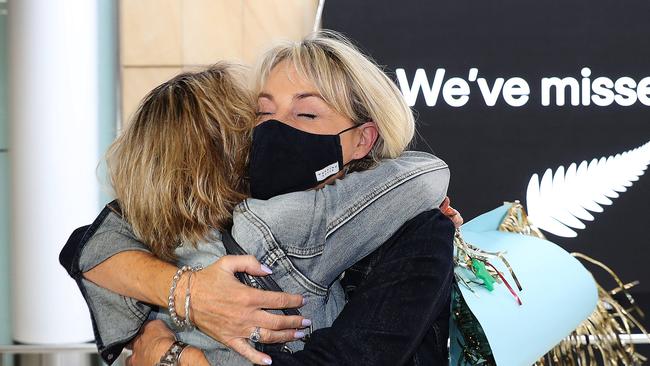Jab hitch takes air out of travel bubble
Excitement over Australia’s first travel bubble has been tempered by fears that snap border closures could do more damage to fragile consumer confidence.

Excitement at the opening of Australia’s first international travel bubble has been tempered by fears that failure could do more damage to fragile consumer confidence.
In a surprising twist, the Australian Federation of Travel Agents has called for a slower return to international travel to allow the vaccination rollout to reach a point where consumers could book with confidence.
AFTA chairman Tom Manwaring said the entire industry would be holding its breath come April 19, when the Australia-New Zealand bubble was due to begin.
With consumer confidence so critical to the future of travel, Mr Manwaring said the bubble could do more harm than good.
“We say that reluctantly but in the travel industry there is a lot of trepidation that if there are some more COVID cases in Auckland as a result of those flights from India, that will result in a shutdown,” Mr Manwaring said.
“That would be another blow to the travel industry, on top of the damage that’s occurred over the last 14 months.”
He said they would prefer to see international travel resume slowly once the vaccination rollout was nearing completion so people could book with confidence.
“There’s a large fear factor now that if there is a COVID case their travel will be interrupted,” Mr Manwaring said. “New Zealand’s Prime Minister said ‘be prepared for disruption’. You can’t plan an international holiday and talk about disruption. People can’t plan their lives like that.”
Travel industry operators have also pointed out that New Zealanders are our lowest spending overseas visitors, and stood to gain more from the bubble financially.
Tourism Research Australia data showed in 2019, New Zealanders spent an average $2004 a trip, more than $1600 less than anyone else.
The relatively modest spend over an average 10-night stay, was due to the fact many Kiwis stayed with friends and family rather than hotels, and shelled out virtually nothing on tours and travel experiences.
Flight Centre chief executive officer Graham Turner said the bubble would certainly benefit New Zealand more than it would Australian tourism operators.
“Proportionally this is really a big thing for New Zealand and a fairly modest boost for Australia,” Mr Turner said. “The main thing is it sort of gives people confidence to travel internationally.”
Australian Accommodation Association chief executive Dean Long said it was true New Zealand had more to gain from an open border with Australia. Not only did more Australians travel to New Zealand, they also spent more, particularly on the ski fields.
“Our total spend in New Zealand prior to COVID was $2.5bn compared to $2.1bn spent by New Zealanders in Australia,” Mr Long said.
Qantas, which has scheduled flights to most of its usual overseas destinations from October 31, would not comment on Friday on the risk of a further delay.
Australian Tourism Industry Council executive director Simon Westaway said there was a need to know what the timeframe would be around the vaccination platform since the changes to the AstraZeneca rollout.
“It’s obviously put another roadblock in the way,” he said.




To join the conversation, please log in. Don't have an account? Register
Join the conversation, you are commenting as Logout